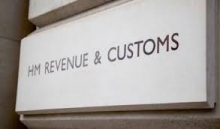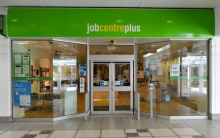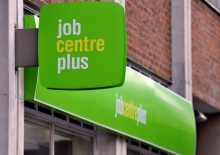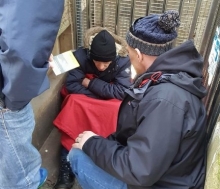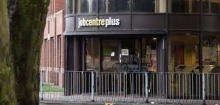Work TV
Watch our TV Channel dedicated to the ‘World of Work’. Explore our video library for informative videos featuring career opportunities at leading companies, franchising opportunities, further education and recruitment professions and their services.
Simon Collyer
Kickstart And Other Job Creating Measures Launched with Mixed Enthusiasm By Chancellor Of The Exchequer Rishi Sunak
KICKSTART - Delivering his Summer Economic Update in Parliament, the Chancellor announced a package of measures to support jobs in every part of the country, give businesses the confidence to retain and hire, and provide people with the tools they need to get better jobs.
The plan for jobs is the second part of a three-phase plan to secure the UK’s economic recovery from coronavirus. Throughout the pandemic, the UK Government has acted with speed to protect lives and safeguard jobs.
The first stage was a £160 billion support package, which included £49 billion of extra funding for the country’s vital public services including the NHS, paying the wages of nearly 12 million people and supporting over a million businesses through grants, loans and rates cuts.
As the UK enters the second phase in its recovery, the Chancellor’s plan is designed to support jobs by focussing on skills and young people, create jobs with investment in shovel-ready projects and greening our infrastructure, and protect jobs through a VAT cut for the hospitality sector and a landmark Eat Out to Help Out discount scheme for diners.

Image: Chancellor of the Exchequer Rishi Sunak.
The Chancellor of the Exchequer Rishi Sunak said:
Throughout this crisis I have never been the prisoner of ideology. For me, this has never just been a question of economics, but of values.
We believe in the nobility of work. We believe in the inspiring power of opportunity. We believe in the British people’s fortitude and endurance.
Our plan has a clear goal: to protect, support and create jobs. It will give businesses the confidence to retain and hire. To create jobs in every part of our country. To give young people a better start. To give people everywhere the opportunity of a fresh start.
The Chancellor said that following this second phase focusing on jobs, there will be a third phase focusing on rebuilding, with a Budget and Spending Review in the autumn.
Supporting jobs
As part of the plan to support jobs, a Job Retention Bonus will be introduced to help firms keep furloughed workers. UK Employers will receive a one-off bonus of £1,000 for each furloughed employee who is still employed as of 31 January 2021.
A new £2 billion Kickstart Scheme will also be launched to create hundreds of thousands of new, fully subsidised jobs for young people across the country. Those aged 16-24, claiming Universal Credit and at risk of long-term unemployment, will be eligible. Funding available for each six-month job placement will cover 100% of the National Minimum Wage for 25 hours a week – and employers will be able to top this wage up.
A total of £1.6 billion will be invested in scaling up employment support schemes, training and apprenticeships to help people looking for a job. Young people, who are amongst the worst hit by the crisis, will benefit from this. This includes:
- Businesses will be given £2,000 for each new apprentice they hire under the age of 25. This is in addition to the existing £1,000 payment the Government already provides for new 16-18-year-old apprentices and those aged under 25 with an Education, Health and Care Plan.
- A £111 million investment to triple the scale of traineeships in 2020-21 ensuring more young people have access to high quality training.
- £17 million of funding to triple the number of sector-based work academy placements in 2020-21
- Nearly £900 million to double the number of work coaches to 27,000;
- Over a quarter of a million more young people to benefit from an extra £32 million investment in the National Careers Service.
Creating jobs
The plan will also create tens of thousands of jobs through bringing forward work on £8.8 billion of new infrastructure, decarbonisation and maintenance projects.
This includes a £3 billion green investment package that could help support around 140,000 green jobs and upgrade buildings and reduce emissions.
As part of this package homeowners and landlords in England will be able to apply for vouchers from a £2 billion Green Homes Grant scheme this year to pay for green improvements such as loft, wall and floor insulation that could save some households hundreds of pounds a year on their energy bills while creating thousands of jobs for tradespeople.
And a £1 billion programme will make public buildings, including schools and hospitals, greener, helping the country meet its ambitions of achieving Net Zero by 2050, whilst investing in our future prosperity.
In addition, £5.8 billion will be spent on shovel-ready construction projects to get Britain building. This includes:
- £1.5 billion for hospital maintenance and upgrades
- £100 million for our local roads network
- over £1 billion to start to rebuild schools in the worst condition in England, plus £760 million this year for key maintenance work on schools and FE colleges
- £1 billion for local projects to boost local economic recovery in the places that need it most
- £142 million for court maintenance to repair around 100 courts across England.
Protecting jobs
The plan will also protect jobs. The tourism and hospitality sectors are massive employers in the UK and have been severely impacted by the pandemic due to necessary closures to protect public health. 80% of hospitality firms stopped trading in April and 1.4 million hospitality workers have been furloughed – the highest proportions of any sector.
Ensuring there is enough demand as businesses reopen is key to helping these businesses recover and have the confidence to protect jobs and rehire. Therefore, to encourage people to safely return to eating out at restaurants the Government’s new Eat Out to Help Out discount scheme will provide a 50% reduction for sit-down meals in cafes, restaurants and pubs across the UK from Monday to Wednesday every week throughout August 2020.
The rate of VAT applied on most tourism and hospitality-related activities will also be cut from 20% to 5%. This will save households around £160 per year on average and, together with the Eat Out to Help Out Scheme, will support over 2.4 million staff at over 150,000 businesses, helping them recover and reopen after the Covid-19 lockdown. This will give these businesses the confidence to maintain their staff, as more people get through the door and business activity kick-starts again.
We want people to feel confident to move, to buy, to sell, to renovate, and to improve their homes. So we’re introducing a temporary increase to the Nil Rate Band of Residential SDLT (Stamp Duty) from £125,000 to £500,000 until 31 March 2021. In England and Northern Ireland nearly 9 out of 10 people getting on or moving up the property ladder will pay no Stamp Duty at all. This will drive growth and support jobs across the housebuilding and property sectors.
ABC Note: Applications for the Kickstart scheme are expected to open next month, with more information to follow in due course.
ABC Comment, have your say below:

Supreme Court of the United Kingdom Rules on a Confiscation Order
SUPREME COURT - Judgment has been given this morning by the Supreme Court of the United Kingdom via video link in the following cases:
R v Hilton (Respondent) (Northern Ireland) – UKSC 2018/0075
On appeal from the Court of Appeal Criminal Division (Northern Ireland)
On 22 September 2015 the respondent pleaded guilty to three offences contrary to section 105A Social Security Administration (Northern Ireland) Act 1972. The prosecution sought and was granted a confiscation order. In determining the amount of property owned by the respondent available for confiscation, the court took into account her half share of the matrimonial home, which was jointly owned with her husband. Section 160A (2) of the Proceeds of Crime Act 2002 provides that the court must give any person other than the defendant holding an interest in the property an opportunity to make representations, before exercising the power to determine the extent of the defendant’s interest. The Court of Appeal held that the failure of the court to provide this opportunity to the respondent’s husband rendered the confiscation order invalid.
The issues are:
1. Where property is held by the defendant and another person, in what circumstances is the court making a confiscation order required by section 160A of the Proceeds of Crime Act 2002, in determining the available amount, to give that other person a reasonable opportunity to make representations to it at the time the order is made?
2. If section 160A does so require, does a failure to give that other such an opportunity render the confiscation order invalid?
The Supreme Court unanimously allows the appeal.
More information is available on the Courts website.
ABC Comment, have your say below:

Statutory Sick Pay to Be Removed for Those Asked To Shield
DWP UPDATE - From 1/8/2020, the government has announced its intention to remove Statutory Sick Pay (SSP) for those who have been told to shield because they are 'clinically extremely vulnerable'.
Advice to shield will be paused from 1/8/2020. Over 2 million people have been advised to shield.
ABC Note: The weekly rate for Statutory Sick Pay (SSP) is £95.85 for up to 28 weeks. It is paid for the days an employee normally works - called 'qualifying days' in the same way as wages, for example on the normal payday, deducting tax and National insurance.
ABC Comment, have your say below:

DWP Latest Government Announcements
DWP - Jobcentre Plus say they are expanding their service offer in jobcentres, a point already covered here at the ABC.
Working with local managers the DWP aim to start expanding their service offer in jobcentres to help get Britain back into work. Work Coaches are calling claimants – no one needs to contact Jobcentre Plus.
Jobcentre Plus say they do not want to sanction anyone. These are difficult, uncertain times for many people and the DWP say they want to do everything they can to help people them find work or increase hours, where that is possible for them. No sanction will be used until the claimant has an up-to-date Claimant Commitment in place. After that, a sanction will only be used where a claimant has not provided good reason for meeting the agreed requirements in the Claimant Commitment. Claimants who are shielding, have childcare responsibilities because of COVID restrictions, etc. will have their Claimant Commitment tailored to reflect their circumstances and will not be asked to do anything unreasonable.
Other government announcements:
|
|
||
|
|
Other government announcements
For the second phase of a major independent review into drug abuse, Dame Carol Black has launched a call for evidence and will engage with a wide range of stakeholders, hearing from service users and people with experience of drug addiction to build a detailed picture of treatment, recovery and prevention. Transport will play a fundamental role in getting people back to work and restarting the country as sectors reopen. To help make sure journeys are safe the Department for Transport has published updated guidance for passengers and operators. |
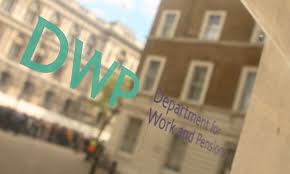
ABC Comment, have your say below:

DWP Recruitment Surge as Major Job Losses Predicted
JOBCENTRE PLUS - Chancellor Rishi Sunak is expected to pledge £800m to recruit 13,500 extra staff as part of an economic recovery package announced on Wednesday states the BBC. The Treasury says 4,500 of them will be in position by October, with more following later in the year.
UK companies announced thousands of job cuts this week, with many firms cutting jobs now to reduce costs.
The furlough scheme that is supporting people finishes in October and as many as 2 million people could lose their jobs it has been predicted.
ABC NOTE: Attatched is a redundancy factsheet.
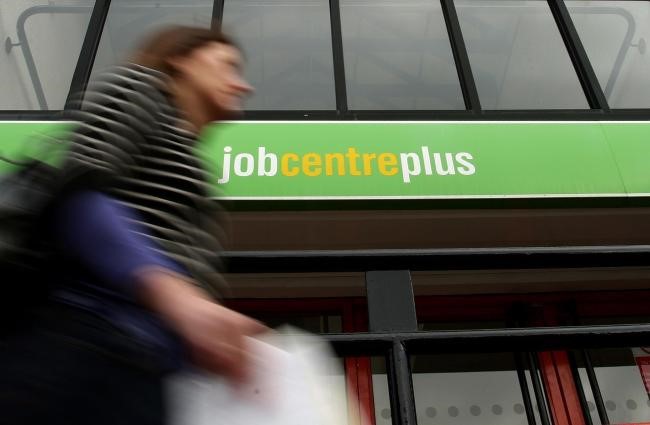
ABC Comment, have your say below:

Attatched is a DWP Redundancy Factsheet:

International Labour Organisation (ILO) Presents Significantly Worse Jobs Outlook Due to COVID-19
JOBS OUTLOOK - The number of working hours lost across the world in the first half of 2020 was significantly worse than previously estimated, while the highly uncertain recovery in the second half of the year will not be enough to go back to pre-pandemic levels, even in the best scenario, and risks seeing continuing large scale job losses, warns the International Labour Organization (ILO).
There was a 14 per cent drop in global working hours during the second quarter of 2020, equivalent to the loss of 400 million full-time jobs (based on a 48-hour working week). This is a sharp increase on the previous Monitor’s estimate (issued on May 27), of a 10.7 per cent drop (305 million jobs).
The new figures reflect the worsening situation in many regions over the past weeks, especially in developing economies. Regionally, working time losses for the second quarter were: Americas (18.3 per cent), Europe and Central Asia (13.9 per cent), Asia and the Pacific (13.5 per cent), Arab States (13.2 per cent), and Africa (12.1 per cent).*
The vast majority of the world’s workers (93 per cent) continue to live in countries with some sort of workplace closures, with the Americas experiencing the greatest restrictions.
Second half of 2020
The new Monitor presents three scenarios for recovery in the second half of 2020: baseline, pessimistic and optimistic. It stresses that the long-term outcome will depend on the future trajectory of the pandemic and government policy choices.
The baseline model – which assumes a rebound in economic activity in line with existing forecasts, the lifting of workplace restrictions and a recovery in consumption and investment – projects a decrease in working hours of 4.9 per cent (equivalent to 140 million full-time jobs) compared to Q4 2019.
The pessimistic scenario assumes a second pandemic wave and the return of restrictions that would significantly slow recovery. The consequence would be a fall in working hours of 11.9 per cent (340 million full-time jobs).
The optimistic scenario assumes that workers’ activities resume quickly, significantly boosting aggregate demand and job creation. With this exceptionally fast recovery, the global loss of working hours would fall to 1.2 per cent (34 million full-time jobs).
Impact on women
The Monitor also finds that women workers have been disproportionately affected by the pandemic, creating a risk that some of the modest progress on gender equality made in recent decades will be lost, and that work-related gender inequalities will be exacerbated.
The severe impact of COVID-19 on women workers relates to their over-representation in some of the economic sectors worst affected by the crisis, such as accommodation, food, sales and manufacturing. Globally, almost 510 million or 40 per cent of all employed women work in the four most affected sectors, compared to 36.6 per cent of men.
Women also dominate in the domestic work and health and social care work sectors, where they are at greater risk of losing their income and of infection and transmission, and are also less likely to have social protection. The pre-pandemic unequal distribution of unpaid care work has also worsened during the crisis, exacerbated by the closure of schools and care services.
Key challenges ahead
While countries have adopted policy measures with unprecedented speed and scope, the Monitor highlights some key challenges ahead:
Finding the right balance and sequencing of health, economic and social and policy interventions to produce optimal sustainable labour market outcomes.
Implementing and sustaining policy interventions at the necessary scale when resources are likely to be increasingly constrained.
Protecting and promoting the conditions of vulnerable, disadvantaged and hard-hit groups to make labour markets fairer and more equitable.
Securing international solidarity and support, especially for emerging and developing countries.
Strengthening social dialogue and respect for rights.
“The decisions we adopt now will echo in the years to come and beyond 2030. Although countries are at different stages of the pandemic and a lot has been done, we need to redouble our efforts if we want to come out of this crisis in a better shape than when it started,” said ILO Director-General Guy Ryder.

Image: International Labour Organisation.
ABC Comment, have your say below:

Cruel Benefit Sanctions to Resume Work and Pensions Secretary Theresa Coffey Announces
BENEFIT SANCTIONS - Benefit sanctions are set to resume from Wednesday despite calls for the £20 a week coronavirus increase in Universal Credit to be made permanent to avoid thousands of claimants falling into poverty.
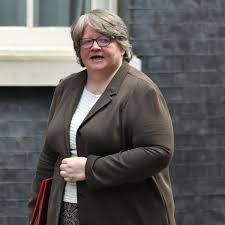
Image: The Work and Pensions Secretary Theresa Coffey.
The Work and Pensions Secretary Theresa Coffey confirmed in Parliament on Monday that the temporary reprieve is to end and claimants will once again be sanctioned if they fail to comply with conditionality requirements for benefits.
The reinstatement of the controversial penalties – among the most punitive aspects of the social security system – was swiftly condemned by the Opposition against a backdrop of soaring unemployment, a huge surge in Universal Credit applications since lockdown, and more than 14 million people, including 4.2 million children, officially in poverty even before COVID-19.
Sanctions, which dock people's benefits if they do not follow government rules, were formally halted for three months from March 30 for anyone failing to look for work or attend an interview.
At the time the government said the blanket ban would "initially be for three months" but "will be reviewed and may be extended ... if required."
There has been widespread condemnation of the governments policy of pushing the blame on unemployed claimants at a time unemployment is about to skyrocket as government support is withdrawn.
ABC Comment, have your say below:

US Urban Decay and Decline Fuels Rising Violence and the Use of Firearms
CRIME - Discount chains are thriving in the US. However, this excerpt from an article by By Alec MacGillis in the New Yorker gives an idea about the danger of working or shopping in stores that have gradually replaced the more upmarket shops that once existed in these neighbourhoods.
Gun Violence Archive is an excellent resource for understanding the level of gun-related violence in the US. You can find it here. The statistics are truly shocking: https://www.gunviolencearchive.org
Insecure 'gig economy' jobs, inequality, high unemployment and rampant drug use and alcohol abuse combined with the offshoring of better-paid manufacturing jobs are all contributing to urban decay and decline.
+++
On November 1, 2018, Woods went to work on his day off, to fill in for an absent co-worker. Footage from a security camera shows a man entering the store just after 1 p.m., wearing a blue sweatshirt with the hood pulled up over a red cap, and holding a silver gun. He fired down the centre aisle, hitting Woods in the back of the head. Then he pointed the gun at the cash register, before seeming to panic. He ran out of the store empty-handed. An ambulance arrived, but Woods was no longer breathing. After his body was removed, Dollar General remained open for several hours, before closing amid protests from residents.
Woods’s murder was one of three homicides in six months at the two discount chains in the St. Louis area. On June 13th, a man and a woman started arguing in a car in the parking lot of a Family Dollar on West Florissant Avenue, just outside the city line; he shot her once in the head, killing her. Less than a month after Woods’s death, a sixty-five-year-old woman was shopping at the Family Dollar on St. Charles Rock Road when a seemingly mentally ill thirty-four-year-old woman grabbed steak knives from a shelf in the store and stabbed her to death.
The Gun Violence Archive, a Web site that uses local news reports and law-enforcement sources to tally crimes involving firearms, lists more than two hundred violent incidents involving guns at Family Dollar or Dollar General stores since the start of 2017, nearly fifty of which resulted in deaths. The incidents include carjackings in the parking lot, drug deals that have gone bad, and altercations inside stores. But a large number involve armed robberies in which workers or customers have been shot. Since the beginning of 2017, employees have been wounded in shootings or pistol-whippings in at least thirty-one robberies; in at least seven other incidents, employees have been killed. The violence has not let up in recent months when requirements for customers to wear masks have made it harder for clerks to detect shoppers who are bent on robbery. In early May, a worker at a Family Dollar in Flint, Michigan, was fatally shot after refusing entry to a customer without a mask.
+++
The article shows the problems associated with urban decay, and the risks to those who work in stores that are open all hours.
 .
.
Image: Courtesy of the New Yorker.
Funding Allocated for Councils To Help Rough Sleepers
ROUGH SLEEPING - Rough sleepers will receive further support after the government set out plans to fund 83 areas with the highest numbers of people at risk over the next 2 years.
Following on from the launch of its Rough Sleeping Strategy last month, the government has today (5 September 2018) announced provisional allocations of a £34 million fund to provide local support for those living on the streets.
Councils across England with the highest numbers of rough sleepers will receive a share of the funding to back on-going initiatives in their area, such as dedicated support teams and securing additional bed spaces.
It will be allocated for council spending over the next 2 years and is an extension of the £30 million that the government provided to councils in June through our Rough Sleeping Initiative Fund.
Among the projects benefitting from the initial £30 million are:
- Sheffield – allocated £363,000 to expand ‘housing led’ services and increased emergency accommodation provision. The fund also provided a specialist support worker to assist a 64-year-old with mobility and addiction problems from sleeping rough to settle into permanent accommodation.
- Thanet – allocated £367,000 to fund a rough sleeping coordinator, mental health specialist outreach worker and substance misuse worker. The council now undertakes regular multi-agency case management meeting reviews of rough sleepers with complex needs and provides individual care plans.
- Bournemouth – allocated £387,000 to employ a dedicated rough sleeping coordinator, 4 specialised outreach workers focused on engagement with those on the streets, specialised psychological support to enable work with those who have experienced complex trauma and an initiative to help increase access to private rented sector for those seeking accommodation.

Image: Rt Hon James Brokenshire MP.
Communities Secretary, Rt Hon James Brokenshire MP said:
The Rough Sleeping Strategy set out the blueprint to end rough sleeping by 2027. Now, the government are vigorously taking the steps to make that happen.
The funding through the Rough Sleeping Initiative is already making a real difference in helping support those off the streets into services and accommodation this year.
The government’s expert Rough Sleeping Initiative Team has closely monitored the progress of the schemes developed from the first £30 million.
Alongside the £34 million allocated today, the government has set aside a further £11 million for spending on additional areas and projects to those supported by the Rough Sleeping Initiative and will announce further details in due course.
ABC Comment, have your say below:

Two Million Face Redundancy in October Predicts Grim New Report
JOB CUTS - A finance company is predicting that two million workers could be made redundant in October
A new report, by lender MarketFinance Ltd, found 45 per cent of firms plan on bringing up to half of their staff back from furlough in July.
Another quarter of furloughed staff will be kept on furlough until the scheme ends.
The report reads: "The future remains less certain for the remaining quarter of furloughed staff, who could well be made redundant."
This includes allowing staff to return to work part time - but on 80% pay from July 1, and asking all employers to make pension and national insurance contributions from August 1
ABC Note: All speculation but there has been criticism that the current pandemic with be used to slash the head count.
From the government:
Redundancy is a form of dismissal from your job. It happens when employers need to reduce their workforce.
If you’re being made redundant, you might be eligible for certain things, including:
- redundancy pay
- a notice period
- a consultation with your employer
- the option to move into a different job
- time off to find a new job
You also have specific rights if your employer is insolvent.
If you’ve been made redundant because of coronavirus (COVID-19), your employer might be able to re-employ you and pay 80% of your wages.
You must be selected for redundancy in a fair way, for example because of your level of experience or capability to do the job.
You cannot be selected because of age, gender, or if you’re disabled or pregnant. If you are, this could be classed as an unfair dismissal.

ABC Comment, have your say below:




